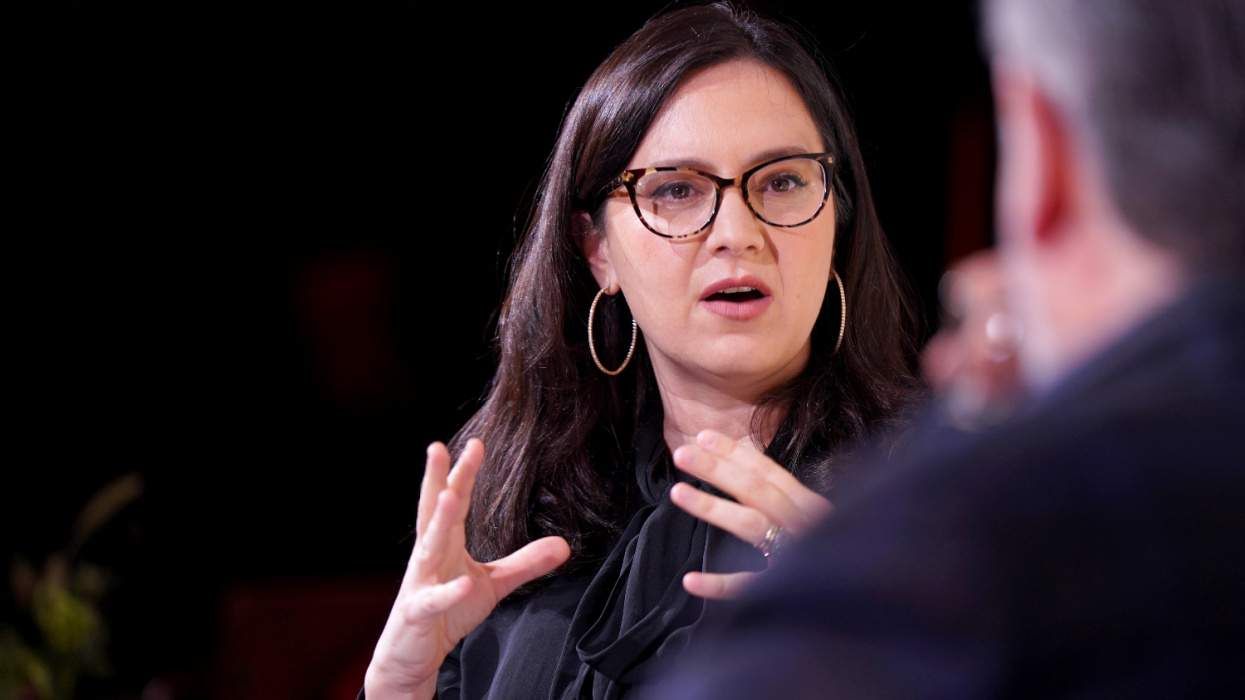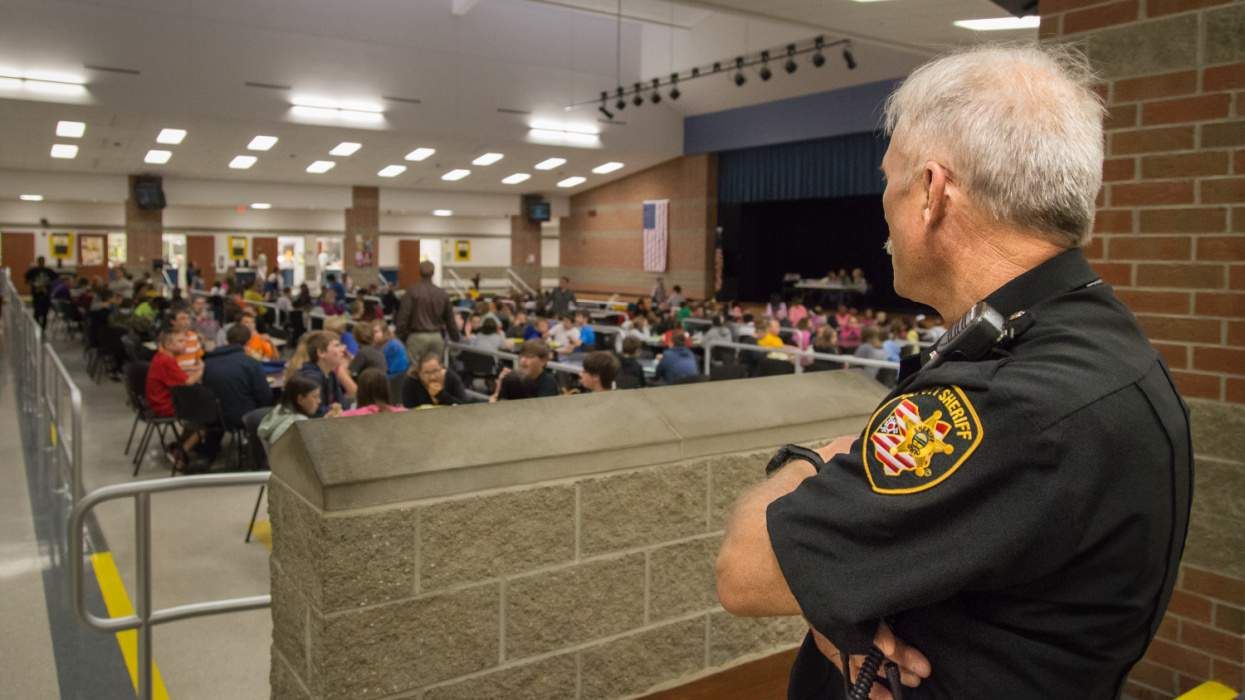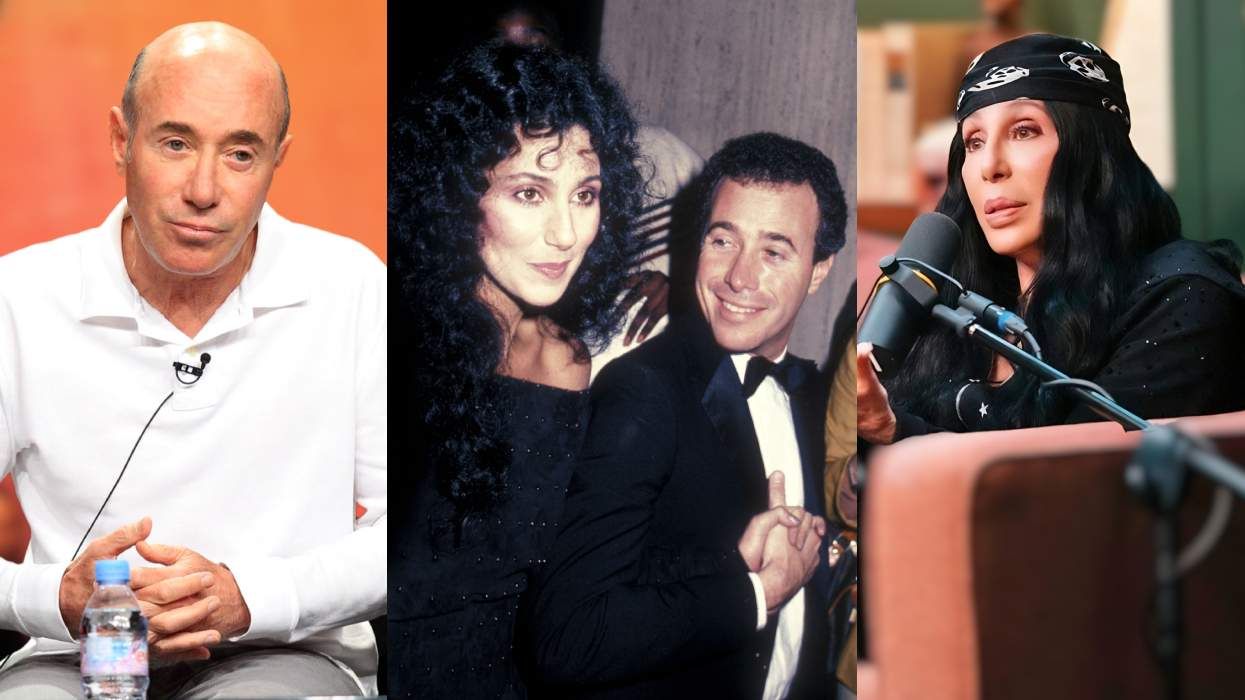Kamala Harris’s town hall on CNN Wednesday night in front of undecided voters in Aston, Pa. (near Philadelphia), touched on numerous issues, although, as has been the case in many campaign events, LGBTQ+ concerns did not come up. But here are some key takeaways from the Democratic presidential nominee’s appearance, which featured questions from audience members and was moderated by Anderson Cooper.
First and foremost: Donald Trump is a fascist
Cooper opened the event by asking if Trump is unfit to be president. “Yes, I do believe that Donald Trump is unstable, increasingly unstable, and unfit to serve.” His vice president, national security adviser, secretaries of defense, and chief of staff “have said, explicitly, he has contempt for the Constitution of the United States,” she said. They have said he should never again serve as president of the United States. We know that is why Mike Pence is not running with him again, why the job was empty.”
“And then today we learned that John Kelly, a four-star Marine general who was his longest-serving chief of staff, gave an interview recently, in the last two weeks of this election, talking about how dangerous Donald Trump is. … He’s just putting out a 911 call to the American people.” Kelly has said Trump “is a fascist to the core,” she said, while Trump openly admires dictators and said he wants to be a dictator on day one of his administration.
“This time, we must take very seriously, those who knew him best and are career people are not going to be there to hold him back.”
“Do you think Donald Trump is a fascist?” Cooper asked. “Yes, I do,” Harris responded. “And I also believe that the people who know him best, on this subject, should be trusted.”
Republicans who have endorsed her “have a legitimate fear” that he will not uphold the Constitution.
There's nothing wrong with changing your mind — when it's necessary
Pennsylvania voter and audience member Rob MacPherson asked if Harris’s shifts in positions, such as moving away from a pledge to ban fracking (a controversial and environmentally questionable method of oil and gas extraction), should call her authenticity into question. “I now have the experience and perspective of having been vice president for almost four years,” she said. She has learned, she added, that “we can invest in a clean energy economy and still not ban fracking.”
“If a perspective needs to be informed by different points of view to build consensus and to have a commonsense approach, I’m never going to shy away from good ideas and I’m not going to feel the need to have pride associated with a position that I’ve taken when the important thing is to build consensus, to fix problems,” she added.
Remember how we got to the overturning of Roe v. Wade
Cooper asked Harris how she would pass a law restoring the right to abortion nationally, a right granted by the 1973 Supreme Court decision Roe v. Wade but taken away by the court in 2022’s Dobbs v. Jackson Women’s Health Organization. Harris said we need to reconsider the filibuster, a U.S. Senate rule under which it requires 60 votes to end debate and move on to a vote on the legislation that’s pending. But she quickly pivoted to Trump’s responsibility for overturning Roe.
“Let’s talk about how we got here. When Donald Trump was president, he hand-selected three members of the United States Supreme Court with the intention that they would undo the protections of Roe v. Wade, and they did as he intended,” she said. “And now, in 20 states, we have Trump abortion bans that include punishing health care providers. … Women have died. Women have died because of these laws.”
She added that many people who consider themselves “pro-life,” that is, opposed to abortion rights, have had to reconsider their position on the procedure’s legality. Former Congresswoman Liz Cheney, a Republican who has endorsed Harris and had been campaigning for her, “is unapologetically pro-life and will also tell you she doesn’t agree with what’s been happening,” Harris said. I find that many people I’ve met who are pro-life have said to me, ‘You know, I didn’t intend that this would happen. I would — I didn’t intend that women who are suffering a miscarriage would develop sepsis,’ as has happened many times. ‘I didn’t intend that women would die,’” Harris said.
You can support Israel and be against anti-Semitism — while also seeking to end Palestinian suffering
Audience member Annalise Kean said her vote depends on what Harris would do to ensure that no more Palestinians are killed by U.S.-funded weapons. “I will say, and I think this is to your point: Far too many innocent Palestinian civilians have been killed. It’s unconscionable,” Harris said.
But the death of Yahya Sinwar, leader of the anti-Israel terrorist group Hamas, which killed many Israelis and took others hostage on October 7, 2023, may open a path to peace, she added. “I do believe we have an opportunity to end this war, bring the hostages home, bring relief to the Palestinian people, and work toward a two-state solution, where Israel and the Palestinians, in equal measure, have security, where the Palestinian people have dignity, self-determination, and the safety that they so rightly deserve.”
Another voter, Beth Samberg, asked how Harris would combat anti-Semitism, which has been on the rise, particularly on college campuses.
Harris responded that there needs to be discussion around the issue and “we need to have laws in place that make those who would commit crimes on behalf of anti-Semitism and hate, that they pay a serious consequence. We need to have the deterrent so that doesn’t happen.”
Trump has cast himself as the protector of Israel, but he has also, according to members of his administration, openly admired Adolf Hitler, who engineered the genocide of Jews in World War II, Harris pointed out. When Cooper asked if she thinks Trump is anti-Semitic, she replied, “I believe Donald Trump is a danger to the security and well-being of America.”
And more about Trump's love of dictators
Harris went on to discuss his reported comment that he wanted his generals to be more like Hitler’s generals. “I believe that when you have a president of the United States who has said to his generals — who work for him because he is commander in chief, these conversations, I assume many of them took place in the Oval Office. And if the president of the United States, the commander in chief, is saying to his generals, in essence, ‘Why can’t you be more like Hitler’s generals?’ Anderson, come on. This is a serious, serious issue, and we know who he is.”
“He admires dictators, sending love letters back and forth with [North Korean dictator] Kim Jong Un. … He secretly sent COVID tests to the president of Russia for his personal use. So, again, this election in 13 days is presenting the American people with a very significant decision … who is going to model what it means to use the pulpit of the president of the United States in a manner that in tone, word, and deed is about lifting up our discourse, fighting against hate, as opposed to fanning the flames of hate, which Donald Trump does consistently.”
Later, she talked about Trump’s dictatorial ambitions. “You can be sure, because he has said, he would weaponize the Department of Justice to go after his political enemies, that you can look at a Donald Trump in the White House after January 20, sitting in that Oval Office plotting his revenge. He has talked about the enemies within,” she said.
“He’s talking about the American people. He’s talking about journalists, judges, nonpartisan election officials,” she continued, adding that he is “going to sit there unstable, unhinged, plotting his revenge, plotting his retribution, creating an enemies list.”
If she is elected, she will have a “list of how I address and continue to address the issues that you all are raising this afternoon and evening,” she said. “It will be a to-do list about how we can impact the American people and lift up the American people and address some of the challenges that we continue to face.”















